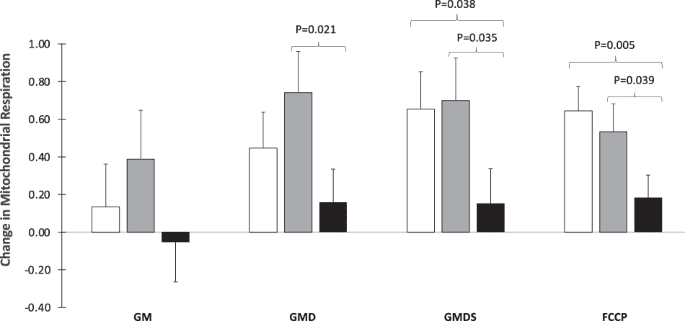Mito
Member
- Joined
- Dec 10, 2016
- Messages
- 2,554
Abstract
Adipocyte mitochondrial respiration may influence metabolic fuel partitioning into oxidation versus storage, with implications for whole-body energy expenditure. Although insulin has been shown to influence mitochondrial respiration, the effects of dietary macronutrient composition have not been well characterized. The aim of this exploratory study was to test the hypothesis that a high-carbohydrate diet lowers the oxygen flux of adipocyte mitochondria ex vivo. Among participants in a randomized-controlled weight-loss maintenance feeding trial, those consuming a high-carbohydrate diet (60% carbohydrate as a proportion of total energy, n = 10) had lower rates of maximal adipose tissue mitochondrial respiration than those consuming a moderate-carbohydrate diet (40%, n = 8, p = 0.039) or a low-carbohydrate diet (20%, n = 9, p = 0.005) after 10 to 15 weeks. This preliminary finding may provide a mechanism for postulated calorie-independent effects of dietary composition on energy expenditure and fat deposition, potentially through the actions of insulin on fuel partitioning.
A high-carbohydrate diet lowers the rate of adipose tissue mitochondrial respiration - European Journal of Clinical Nutrition
Adipocyte mitochondrial respiration may influence metabolic fuel partitioning into oxidation versus storage, with implications for whole-body energy expenditure. Although insulin has been shown to influence mitochondrial respiration, the effects of dietary macronutrient composition have not been...
